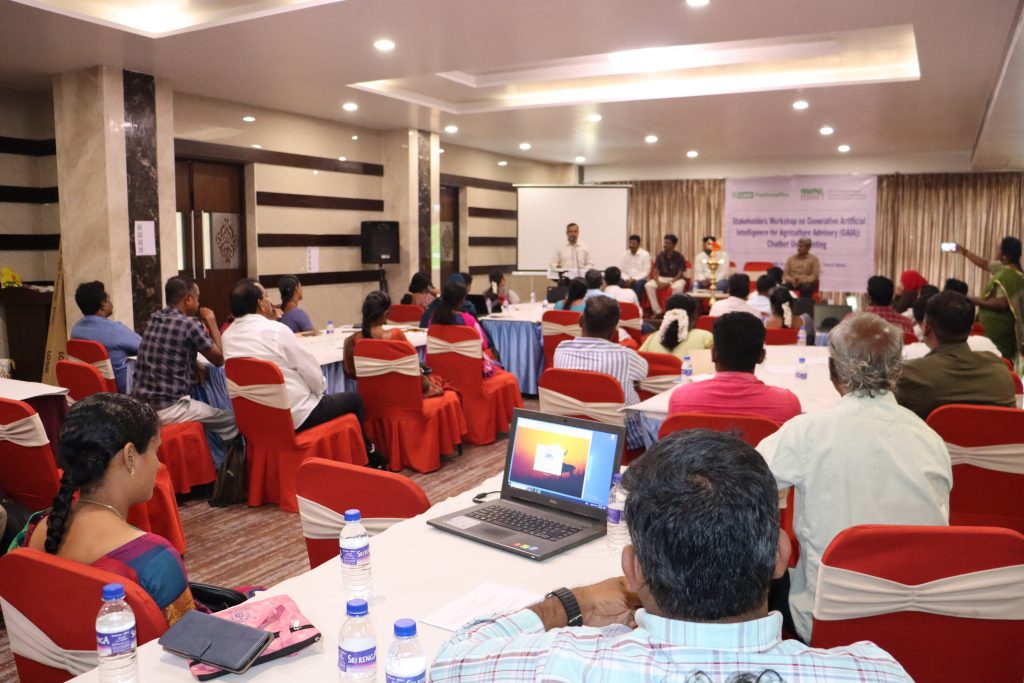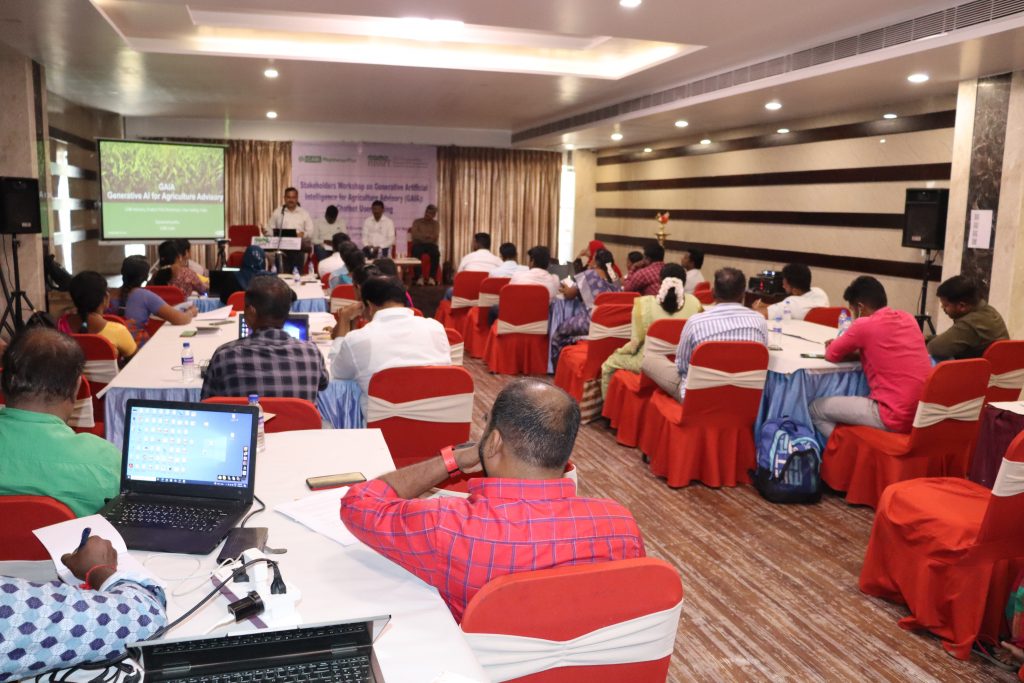An engrossing workshop on how Generative Artificial Intelligence for Agriculture Advisory (GAIA) empowers stakeholders in new and exciting ways to enhance efficiency in agriculture.
The M.S. Swaminathan Research Foundation (MSSRF) and CABI jointly organized a Stakeholders Workshop on Generative Artificial Intelligence for Agriculture Advisory (GAIA): Chatbot User Testing at Hotel MA Grand, Pudukkottai, Tamil Nadu, on the 12th of November 2024.
The workshop was inaugurated by R. Deepa Kumar, District Development Manager, NABARD, Pudukkottai, in the presence of Mohamed Rafi, Agriculture Officer, Pudukkottai, and Dr. K C Sivabalan, Programme Coordinator, Centre for Research in Environment and Agriculture (CREA). Dr. R. Rajkumar, Senior Fellow, MSSRF, explained the purpose of the workshop. Dr. R. Ganesamoorthy, Crop Health Advisor, CABI South Asia, facilitated the workshop.
The GAIA initiative aims to enhance agricultural advisory services using Generative AI (GenAI) technologies to empower plant doctors, extension agents, and farmer advisors. It leverages GenAI capabilities to address crucial agricultural challenges.

This partnership with MSSRF in India is to understand the local challenges that will enable the stakeholders for efficient implementation.
Generative AI uses machine learning algorithms to create new content by simulating data-based patterns for applications in text, images, music, and video. In agriculture, GenAI applications include crop growth simulation, genetic improvement, climate prediction, pest detection, and advisory chatbots. Chatbots powered by GenAI facilitate user interaction by delivering personalized, context-driven advice based on CABI’s extensive databases. These AI-driven chatbots support plant doctors and agricultural advisors with information on pest and disease diagnosis, pest symptoms, and crop health. CABI focuses on delivering verified advisory information through a GenAI chatbot – targeting pilot regions in India for rice and banana crops.
The pilot chatbot, currently text-based and in English, draws from trusted sources like PlantwisePlus Pest Management Decision Guides, Farmer Factsheets, and the Bioprotection Portal. The chatbot’s focus areas include pest and disease diagnosis, chemical and biopesticide information, and invasive species data. Testing covers chatbot functionality, response relevance, and scientific accuracy. Future enhancements aim to include regional languages, expand crop coverage, and integrate partner content.
Testing involves a structured pre-test survey, chatbot interactions (recorded and documented for review), and content analysis. Post-testing, an individual survey collects feedback to optimize chatbot functionality and ensure it meets advisors’ needs. Stakeholder input and suggestions were documented for improving efficiency.
Forty-five participants, including representatives from the Department of Agriculture, Farmer Producers Organisations (FPOs), progressive farmers, agricultural NGOs, faculty members from agricultural colleges, agro-input dealers, and MSSRF scientists, took part in the workshop.
Dr. Manikandan, Scientist, MSSRF, welcomed the participants, and T. Vimala, Field Coordinator, proposed the vote of thanks.
The news article was written by Dr. R. Rajkumar.



